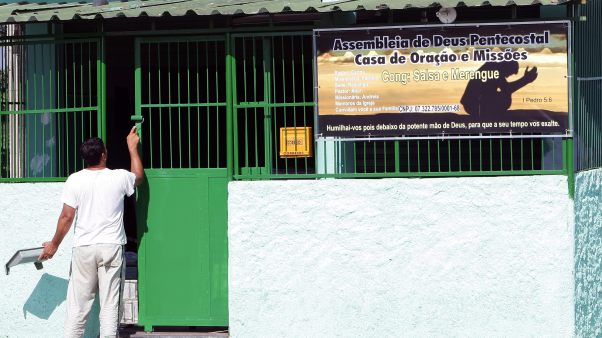A debate within the Southern Baptist Convention (SBC) over a method to evangelize Muslims demonstrates the difficulties of gospel contextualization.
The ongoing disagreement flared recently when Liberty Theological Seminary president Ergun Caner labeled as heretical the “camel method,” an SBC evangelistic strategy.
Though he later apologized for calling International Mission Board (IMB) president Jerry Rankin a liar in the same interview, Caner did not retreat from criticizing what he called a deceptive practice.
The method uses the acronym CAMEL to explore a Qur’an passage describing the Virgin Birth, miracles, and resurrection of Isa al-Masih (Arabic for “Jesus the Messiah”) as a bridge to the New Testament. The method was detailed in a 2004 book by SBC missionary Kevin Greeson, who observed Muslim-background converts in Asia using it successfully.
Critics fear the method impedes evangelism and discipleship by treating the Qur’an as a credible source of divine truth.
While Caner, a Turkish convert from Islam, contextualizes messages to his college students with references to American Idol and current movies, he said the camel method crosses the line into syncretism.
“The increasing popularity of this practice is disturbing,” Caner said. “I could not see the early church pinching incense to Emperor Nero but in their hearts actually visualizing Jesus. They chose to die rather than even follow the false forms of a false god.”
But Rankin said IMB trustees found the method valid after a 2007 investigation that included issuing principles of contextualization. “Historically, a missions approach has been to extricate Muslims from their community once they converted, which didn’t do much for planting the gospel among Muslims,” he said.
An IMB-sponsored survey in 2002 found some 125,000 Muslims who had come to faith in Christ through the camel method, been baptized, and were orthodox in their practices.
Joseph Cumming of the Yale Center for Faith and Culture said the camel debate is different from the C1 to C5 discussion (CT, Dec. 2009), which involves Muslim-background believers’ religious identity.
However, he estimates that 90 percent of missionaries living among Muslims refer to verses in the Qur’an without inciting the heated arguments found in the U.S.
“It seems to me that the debates get hotter the farther removed the debaters are from it touching them personally,” said Cumming.
Some missiologists see problems with Americans’ proclivity for finding methods and imposing values.
“In the West, everybody wants to make evangelism a method,” said Paul Martindale, lecturer in Islamic studies at Gordon-Conwell Theological Seminary. “Turning [camel] into a universal method is more dangerous than using it.”
Roy Oksnevad, director of Muslim ministries at Wheaton College’s Billy Graham Center, said one point of the camel method—its interpretation of Isa’s knowledge of the way to heaven—bends the gospel too far in its efforts to identify with its audience. “This is sloppy missiology and theology,” he said.
Ironically, the closer one gets to the geographic heart of Islam, the less syncretism becomes an issue. In regions where fundamentalist versions of Islam are practiced, Muslims who accept Christ want no part of extreme contextualization, Oksnevad said.
These debates also overlook a more significant issue, Martindale said. He thinks a Western emphasis on individual rights has diminished the ideal of persecution and suffering.
“Western missionaries want to make it easier for Muslims to come to Christ while avoiding persecution,” said Martindale. “That’s sympathetic, but it’s not biblical.”
Despite the criticism, Rankin said, the IMB will continue using the camel method. “It’s very effective and biblically valid,” he said. “Why would you cease witnessing just because somebody has a problem with it?”
Copyright © 2010 Christianity Today. Click for reprint information.
Related Elsewhere:
The New York Times also wrote about the “camel method,” and Associated Baptist Press has published twoarticles on the controversy.
This month’s Global Conversation articles focus on witnessing to Muslims. In December, authors considered Muslims followers of Jesus.
Previous CT articles on evangelism include:
Servant Evangelism | How Luis Palau, thousands of volunteers, and a gay mayor are trying to transform Portland. (October 31, 2008)
Evangelism Plus | John Stott reflects on where we’ve been and where we’re going. (October 13, 2006)
Emergent Evangelism | The place of absolute truths in a postmodern world—two views. (November 1, 2004)









